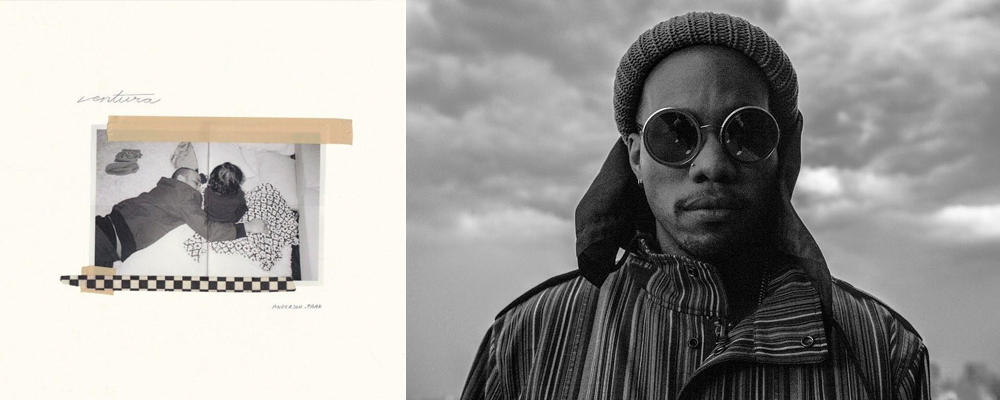Anderson .Paak Settles Further Into His Groove on ‘Ventura’
Adi Mehta
There are certain artists who do things their own way, and end up defying all odds with their success, making hipster oddballs gush up in their enclaves. Such is the case of Anderson .Paak, and his latest album “Ventura” is simply the latest iteration of his highly specific craft at its most thoroughly realized yet. There are some hits and downright abysmal misses along the way, but ultimately, it’s as wonderful as anyone familiar with Paak would expect, as well as a more than welcoming introduction to newcomers.
The opener, “Come Home is elaborate in an instantly ‘70s way, a refreshing change from the minimalism that has come to categorize the soul sphere of pop music. The free whimsicality of Paak’s delivery is immediately charming, and illustrious guest Andre 3000 seems a perfect match, as he’s always shown a penchant for grandiose frivolity, which reached its height on 2003’s “The Love Below.” The biggest gripe about that album among Outkast fans was how little Andre rapped, and those fans will be quite pleased with Andre’s appearance on this track.
“Make It Better” is a delightful retrofitting of classic, well-aged soul aesthetics to crisp, modern production. Paak couldn’t sound more in his element, and everything is immaculate, save for the one flagrant, egregious offense of the song title, which reads “feat. Smokey Robinson.” The only justification of such shameless fraud would be a belated April Fools joke. The name Smokey Robinson has plenty connotation behind it — a more than distinctive voice, a firm placement in the Motown sound that formed so much of the foundation of music we take for granted today. This “feature” is false advertisement at its best/worst. Robinson murmurs in the background for a few phrases, and it’s only a matter of time when we can have an artist merely breathe into a microphone and call it a “feature.”
On the bright side, you can hear Smokey Robinson in Paak’s own voice, even in the next track, “Reachin’ 2 Much,” and ultimately that’s a more proper tribute than a forced guest appearance. The song sounds very zen in an unmistakably R&B way — all off-white outfits and grand gesticulations. And Paak has absolutely got this sound down. Featured Lalah Hathaway is slightly more prominent than Smokey Robinson, but it hardly calls for a titular listing. Paak really goes to town with some scat singing at the end, and overall, he channels enough disparate soul singers with enough demonstrable conviction and force that he really needn’t rely on such petty, transparent gimmicks. The unlisted lady featured on “Winners Circle” contributes much more to that track than either of the aforementioned names, and deserves some credit for the song’s allure. The song begins with a segment from 1993 film “A Bronx Tale,” with dialogue including “You’re only allowed three great women in your lifetime.” One would expect perhaps some survey of past romances, some meditation on the fleeting nature of love, but what we get instead is basically a stream of consciousness flow that’s hard to make sense of. On the other hand, it’s this very outrageous, devil-may-care approach that accounts for a sizable portion of Paak’s magic. He scrawls down a few ideas, and just flows freely, and invariably drops some gems along the way.
“Good Heels,” featuring Jazmine Sullivan, is basically a steamy interlude, packing a lot of playful feist into just short of a window enough for optimal punch. “Yada Yada” draws you back to center, running like almost a very far removed gospel sermon, with a quirky master of ceremonies and some enthused backup singers that chip in with great flair at just the right moments. “King James” is a festive, positive, mobilizing number that draws on a longstanding tradition of social awareness in soul music. There are platitudes like “What about the love? / What about the neighbors?” but they work precisely because they’re platitudes, and they’re meaningful enough to be well worth it. A key part of the song is Paak’s free adoption of a certain bit of James Brown’s “Sex Machine.” Anyone who’s heard the original will pick up on it upon first listen.
“Chosen One” strikes like a ruthless, ecstatic shock, all soulful instincts brimming and nearly overflowing. The positivity really is contagious, and it basically guarantees to leave the listener spirited and joyful. “Jet Black” runs seamlessly from this, and drops some epithets that carry considerable weight, in that they casually describe standards of beauty that veer slightly away from the norm, for instance “Shaped like pear, baby, jet black hair.” “Twilight” turns up the retro component, and Paak sounds possibly more like Smokey Robinson here than ever, voice tone, inflections, and all. And it’s a wonderful thing. “What Can We Do?” spurts ahead a bit, planting both feet firmly in the nebulous yet distinctive sphere of contemporary R&B/Hip-Hop. Who better to feature on such a track than the late hook-master extraordinaire Nate Dogg? So, Paak throws in some Nate Dogg bits, but predictably, they’re scanty, and it ends up cheapening the whole display.
Anderson .Paak is turning out music at a truly astonishing rate, which itself is of course admirable. More importantly, he’s turning out music that is sorely needed — music that infuses the bleak pop landscape with some of the musical richness, political vocalness, and general, artistic adventurousness that is lacking in the whole spectrum of popular music, but arguably, especially so in Paak’s particular niche. It’s a shame that an artistic as prolific as Paak has to resort to such tawdry abasings as the “features” on this record, but the album has enough to make up for all that. “Ventura” is an overall engaging, even if slightly patchy, release from an artist that always delivers.
“Ventura” is available April 12 on Apple Music.

